Barclays Updates Rating on Deere & Company Amid Geopolitical Tensions
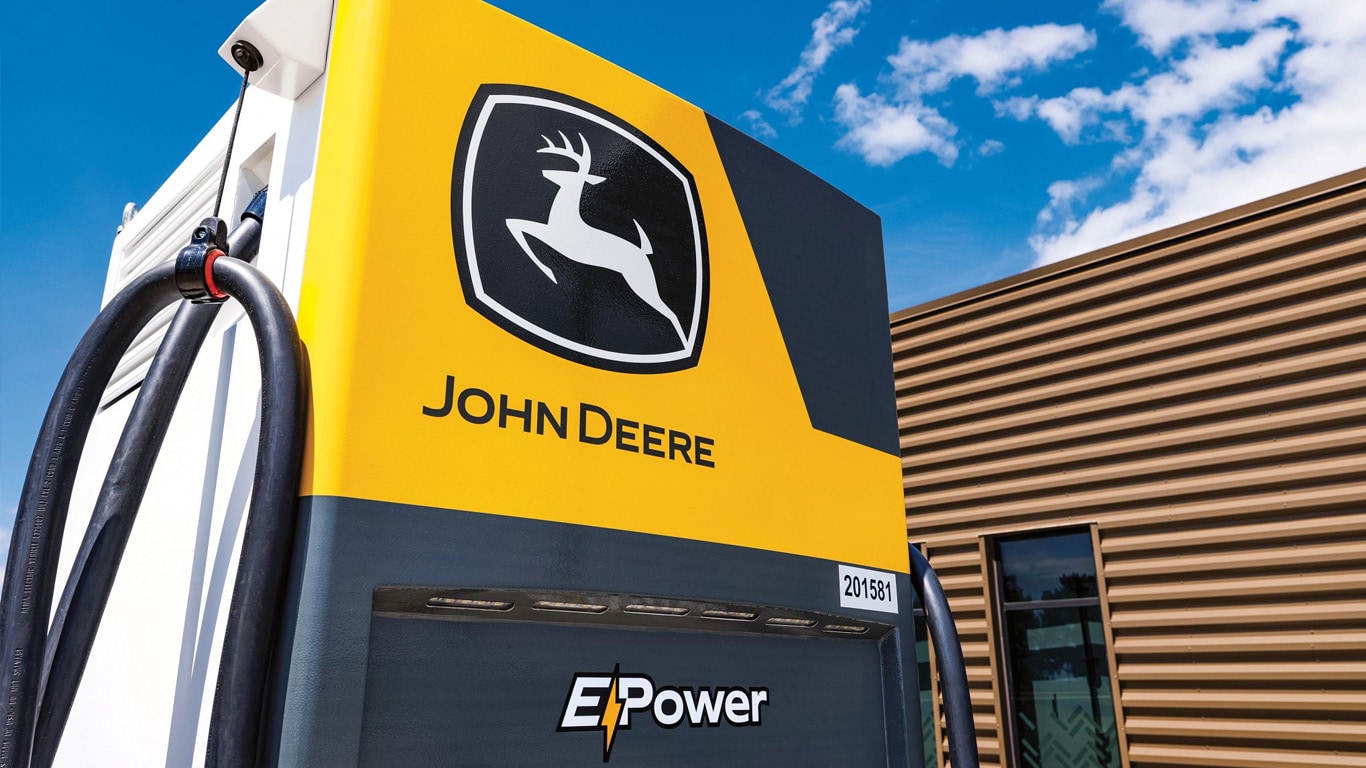
- Barclays has updated its rating on Deere & Company (NYSE:DE) to Overweight, maintaining a hold position, with a stock price of $410.89.
- Deere & Company faces potential challenges due to threatened tariffs by former President Donald Trump, which are not specific to Deere but could impact the agricultural machinery sector.
- The stock market has shown a slight increase in DE's stock price by $1.94 or approximately 0.47%, reflecting the market's assessment of Deere's financial health amidst these geopolitical tensions.
On Tuesday, September 24, 2024, Barclays updated its rating on Deere & Company (NYSE:DE) to Overweight, maintaining a hold position. This adjustment was announced alongside a stock price of $410.89. The reiteration of the Overweight grade by Barclays was highlighted in a report, which also discussed the impact of threatened tariffs by Trump, noting that these are not specific to Deere. This analysis was published by TheFly, providing insights into the factors influencing Barclays' stance on DE.
Deere & Company, a leading manufacturer of agricultural machinery, finds itself at the center of geopolitical tensions as former President Donald Trump threatens to impose a 200% tariff on its products. This move comes in response to Deere's decision to relocate some production facilities to Mexico, a strategy that has led to layoffs in Iowa and sparked a debate on the future of U.S. manufacturing. The company's commitment to U.S. manufacturing, as stated on its website, contrasts with the potential implications of such tariffs.
The stock market has reacted to these developments with DE's stock price experiencing a slight increase of $1.94, or approximately 0.47%, to close at $410.89. This change reflects the market's ongoing assessment of Deere's financial health and its ability to navigate the challenges posed by the proposed tariffs. With a market capitalization of about $112.42 billion and a trading volume of 1,222,277 shares, Deere & Company remains a significant player in the agricultural sector, despite the external pressures.
Criticism from figures like Mark Cuban, who opposes Trump's tariff threats and supports Democratic rival Kamala Harris, underscores the broader economic debate surrounding these policies. Cuban's critique, as reported by Market Watch, highlights the potential negative impacts on companies like Deere, emphasizing the importance of understanding the broader economic strategies at play.
As Deere & Company navigates these complex geopolitical and economic landscapes, the company's stock performance and Barclays' rating adjustment reflect the ongoing evaluation of its strategic decisions and their implications for investors. The situation underscores the interconnectedness of global manufacturing strategies, U.S. political dynamics, and the financial markets, with Deere & Company at the nexus of these significant trends.
| Symbol | Price | %chg |
|---|---|---|
| 241560.KS | 57100 | 1.93 |
| 6301.T | 5325 | -1.62 |
| 042670.KS | 15300 | 3.4 |
| 6326.T | 1899 | -2.69 |
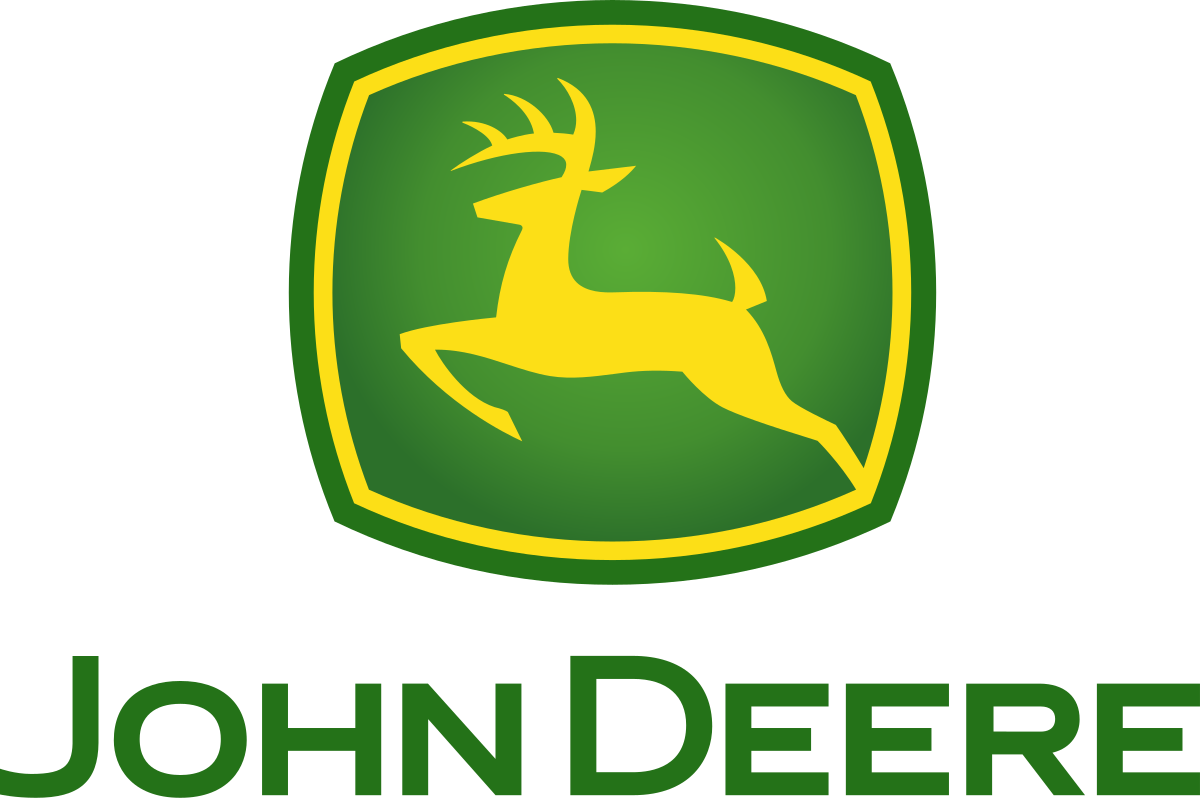
Deere & Company's (NYSE:DE) Quarterly Earnings Overview
- Earnings Per Share (EPS) of $4.75, surpassing the estimated $4.58 and the Zacks Consensus Estimate of $4.62.
- Reported revenue of $10.36 billion, a decrease from the previous year but slightly above the Zacks Consensus Estimate.
- Despite challenges, Deere has shown strong financial metrics with a P/E ratio of approximately 24.63 and a debt-to-equity ratio of 2.74.
Deere & Company, listed as NYSE:DE, is a prominent player in the manufacturing of farm equipment. The company recently reported its quarterly earnings, showcasing a strong performance with earnings per share (EPS) of $4.75, surpassing the estimated $4.58. This achievement highlights Deere's ability to exceed market expectations, despite facing challenges in the industry.
The reported EPS of $4.75 also exceeded the Zacks Consensus Estimate of $4.62, marking a positive surprise of 2.81%. However, this figure represents a decline from the $6.29 per share reported in the same quarter last year. This decline is part of a broader trend, as Deere has experienced year-over-year revenue declines, with the latest revenue of $10.36 billion slightly above the Zacks Consensus Estimate by 0.97%.
Deere's revenue for the quarter ending in July 2025 was $10.36 billion, a decrease from the $11.39 billion in the same period last year. Despite this, the company has consistently outperformed consensus EPS estimates over the past four quarters. The company's proactive inventory management, as highlighted by John May, chairman and CEO, has allowed Deere to align production with retail demand, ensuring a swift response to market changes.
The company's financial metrics provide further insight into its performance. Deere's price-to-earnings (P/E) ratio is approximately 24.63, indicating the price investors are willing to pay for each dollar of earnings. The price-to-sales ratio stands at about 3.06, reflecting the value placed on each dollar of the company's sales. Additionally, the enterprise value to sales ratio is around 4.36, suggesting the company's total value relative to its sales.
Despite the challenges posed by an oversupply of used equipment and cautious consumer behavior, Deere's disciplined execution has yielded solid results. The company's debt-to-equity ratio is approximately 2.74, indicating the proportion of debt used to finance its assets relative to shareholders' equity. The current ratio of around 2.18 suggests Deere's ability to cover its short-term liabilities with its short-term assets, providing a measure of financial stability in uncertain times.
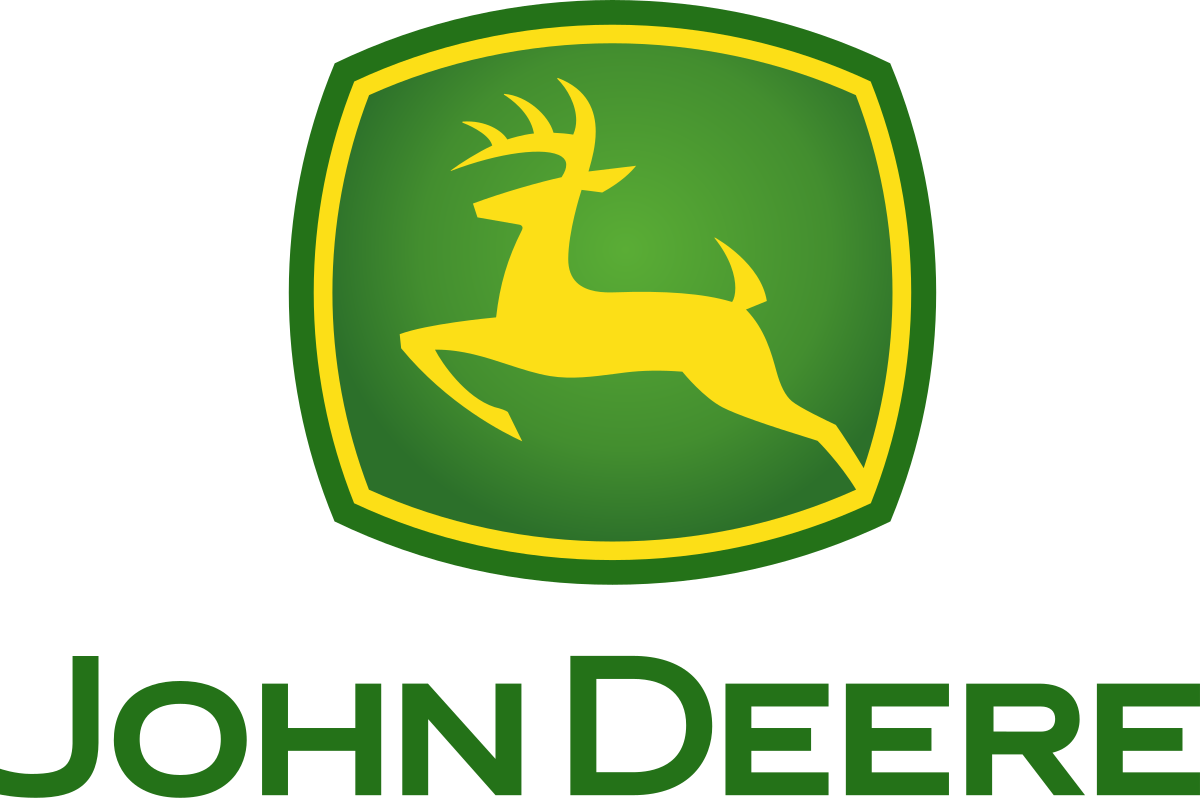
Deere & Company (NYSE:DE) Financial Overview and Future Outlook
- The consensus price target for Deere & Company (NYSE:DE) has shown an overall yearly increase, suggesting a positive long-term outlook despite short-term market adjustments.
- Despite the broader agricultural environment's challenges, Deere's Precision Agriculture and subscription services are highlighted as promising growth areas.
Deere & Company (NYSE:DE) is a prominent player in the manufacturing and distribution of agricultural, construction, and forestry equipment. Founded in 1837, the company operates through four main segments, including Production and Precision Agriculture, Small Agriculture and Turf, Construction and Forestry, and Financial Services. Deere's extensive product range includes tractors, combines, and financial services for equipment sales and leases. Headquartered in Moline, Illinois, Deere is a key competitor in the global equipment industry.
The consensus price target for Deere & Company (NYSE:DE) has shown an upward trend over the past year, reflecting growing confidence in the company's performance. Last year, the average price target was $492.1, which increased to $579.67 last quarter. However, the target slightly decreased to $560 last month, indicating some short-term concerns or market adjustments. Despite this, the overall yearly increase suggests a positive long-term outlook for the company.
Analyst Mircea Dobre from Robert W. Baird has set a price target of $487 for the stock. This target reflects a cautious yet optimistic view of Deere's financial performance, considering the challenging agricultural environment and margin pressures due to tariffs and high valuation multiples. Investors are closely monitoring these developments as they strategize on potential earnings from Deere stock.
The company's recent stock performance has been bolstered by surpassing low expectations, although the broader agricultural environment remains challenging. Farm income is currently supported by unpredictable government payments rather than robust crop receipts, which typically drive capital expenditure and machinery demand. Despite these challenges, Deere's Precision Agriculture and subscription services are promising areas for growth.
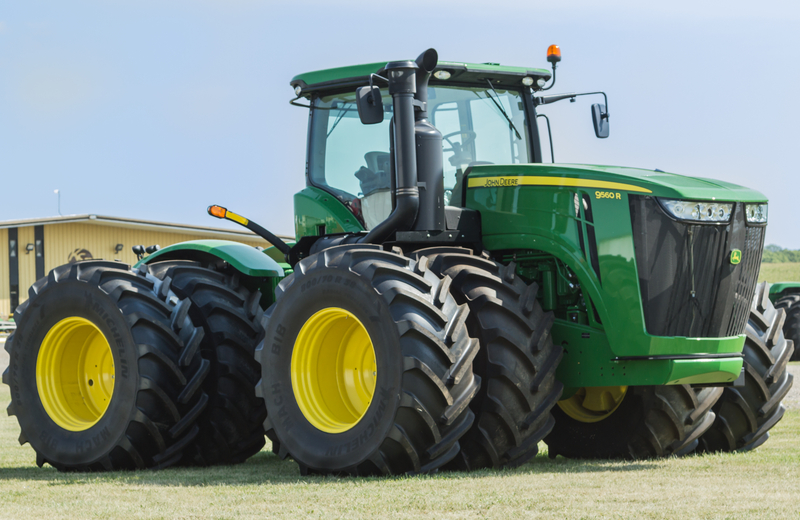
Deere’s Deep Roots in Brazil Position It for Long-Term Growth, Says Truist
Truist Securities is maintaining its Buy rating on Deere & Company (NYSE:DE) with a $619 price target, highlighting the company's expanding footprint in Brazil as a key driver of long-term growth and earnings resilience.
Over the past two decades, Deere has methodically built out its presence in Brazil, investing in localized manufacturing, product development, and a robust dealer network. These efforts have helped the company capture leading market share in the country while achieving profitability on par with its North American operations.
Brazil’s agricultural sector is increasingly shifting toward large-scale commercial farms, creating fertile ground for Deere’s precision agriculture technologies. The company is seeing a direct link between adoption of these tools and market share gains, reinforcing its strategy to accelerate top-line growth in the region.
While Deere continues to target a 20% through-cycle margin, its performance already exceeds that benchmark thanks to high-margin parts sales, a growing financial services arm, and geographic diversification. The company’s ability to sustain industry-leading margins and deliver consistent earnings through various market cycles positions it as a standout in the industrial sector.
Truist believes Deere’s blend of organic growth, precision ag leadership, and global earnings strength makes a compelling case for continued upside, even in a challenging macro environment.
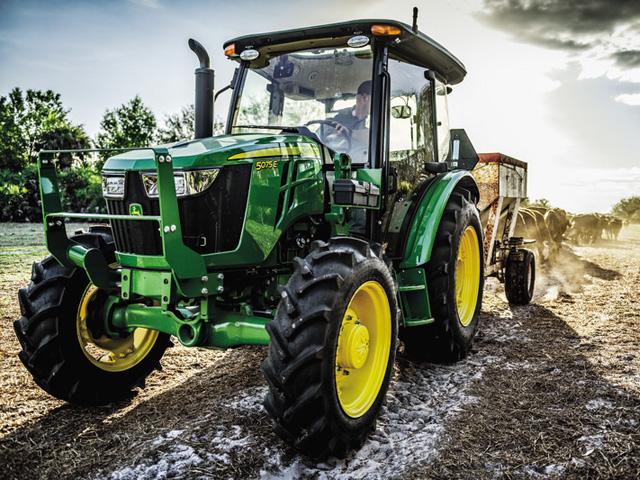
Deere Reaps Analyst Upgrade on Ag Tech Potential
Melius Research upgraded Deere (NYSE:DE) to Buy from Hold, boosting its price target to $750, citing growing confidence in the company's transformation into a tech-driven agricultural powerhouse.
After a prolonged period of caution, the firm sees Deere's dominant position in precision agriculture and smart farming solutions as a major value catalyst. While the exact timing of a broader cyclical recovery in the ag sector remains unclear, Melius believes the market will soon begin recognizing the long-term earnings potential embedded in Deere’s recurring revenue model.
Deere is targeting recurring and SaaS-style revenue to represent 10% of total sales—an opportunity estimated at $5 billion by 2030. As adoption of these technologies accelerates and the benefits to farmers become more tangible, the firm expects investors to increasingly price in this high-margin growth potential.
With a vast runway for further expansion and monetization of its ag tech innovations, Deere is now viewed by Melius as not just a cyclical equipment manufacturer but a platform for recurring value creation.

Deere Tops Q2 Estimates but Narrows Outlook Amid Weak Equipment Demand
Deere & Company (NYSE:DE) beat second-quarter expectations on both earnings and revenue, but trimmed the lower end of its full-year profit outlook as softening demand weighs on its core agricultural equipment business. The company’s shares closed more than 3% higher today.
For the quarter, the company reported adjusted earnings per share of $6.64, comfortably ahead of the $5.56 analyst consensus. Revenue also outperformed, rising to $12.76 billion versus expectations of $10.98 billion.
Despite the beat, shipment volumes declined across key segments, with Production & Precision Agriculture sales down 21% year-over-year. Still, Deere managed to preserve strong operating margins, showcasing disciplined cost control amid the downturn.
The company now expects full-year net income between $4.75 billion and $5.50 billion, adjusting the bottom of its prior $5.0–$5.5 billion range to reflect ongoing market headwinds.
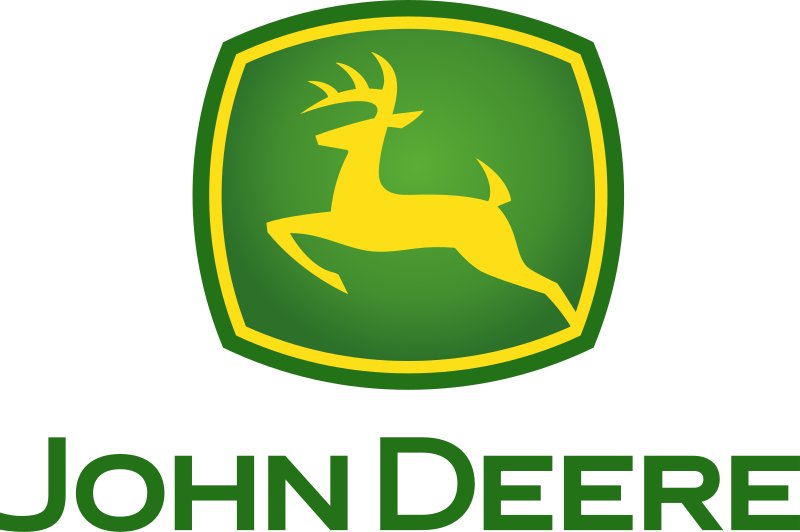
Deere & Company (DE) Surpasses Earnings and Revenue Estimates
- Deere & Company (NYSE:DE) reported an impressive EPS of $6.64, surpassing the estimated $5.56.
- Revenue for the quarter was $11.17 billion, exceeding expectations and demonstrating the company's market resilience.
- Despite facing challenges such as tariff impacts, DE adjusted its fiscal 2025 net income outlook of $4.75 billion to $5.5 billion, reflecting a proactive approach to navigating a dynamic environment.
Deere & Company, listed on the NYSE as DE, is a leading manufacturer of agricultural equipment. On May 15, 2025, DE reported impressive earnings per share (EPS) of $6.64, surpassing the estimated $5.56. This achievement highlights the company's ability to exceed market expectations, as it also reported revenues of approximately $11.17 billion, exceeding the estimated $10.95 billion.
Despite the positive earnings surprise of 16.9%, DE's EPS of $6.64 was lower than the $8.53 reported in the same quarter last year. This decline reflects the challenges faced by the company, including tariff impacts. However, DE has consistently outperformed consensus EPS estimates over the past four quarters, demonstrating its resilience in a dynamic market environment.
DE's revenue for the quarter ending April 2025 was $11.17 billion, surpassing the Zacks Consensus Estimate by 4.89%. However, this was a decline from the $13.61 billion recorded a year ago. The company's Production & Precision Agriculture segment saw a 21% drop in sales to $5.23 billion, while the Small Agriculture & Turf segment experienced a 6% decrease to $2.99 billion. The Construction & Forestry segment also faced a 23% decline, bringing in $2.95 billion.
In response to these challenges, DE adjusted its fiscal 2025 net income outlook, broadening its forecast to a range of $4.75 billion to $5.5 billion. This adjustment reflects the company's proactive approach to navigating a "dynamic environment," as highlighted by CEO John May. Despite these challenges, DE shares had risen approximately 18% prior to the announcement, indicating investor confidence in the company's long-term prospects.
DE's financial metrics provide further insight into its market position. The company has a price-to-earnings (P/E) ratio of approximately 21.73, indicating the price investors are willing to pay for each dollar of earnings. Its price-to-sales ratio stands at about 2.88, reflecting the value placed on each dollar of sales. Additionally, the enterprise value to sales ratio is around 4.11, showing the company's total valuation relative to its sales. These metrics, along with a debt-to-equity ratio of approximately 2.88 and a current ratio of around 2.20, highlight DE's financial stability and ability to cover short-term liabilities.

Deere Stock Falls as Profit Halves, Sales Miss Expectations
Deere & Co. (NYSE:DE) saw its shares fall more than 2% intra-day today after reporting a steep 50% decline in net income and weaker-than-expected sales for its fiscal first quarter, as the agricultural equipment giant grapples with inventory challenges and market uncertainty.
For the quarter, net income dropped to $869 million, down sharply from $1.75 billion a year earlier, though it still slightly exceeded analyst projections of $848.7 million. Revenue plunged 30% to $8.51 billion, while net sales, excluding finance and interest income, fell to $6.81 billion, well below the $7.67 billion consensus estimate.
Deere maintained its full-year 2025 net income forecast of $5 billion to $5.5 billion, despite mounting industry pressures. The company expects sales in its Production & Precision Agriculture division to decline by 15% to 20%, while small agriculture and turf revenue is projected to drop around 10%. Additionally, construction and forestry equipment sales are forecasted to shrink by 10% to 15%.
As the world’s largest farm equipment manufacturer, Deere is navigating a challenging macroeconomic environment, where lower demand and inventory adjustments are weighing on financial performance. While the company held firm on its full-year guidance, the sharp revenue decline and sector-wide headwinds have rattled investors, sending the stock lower.







